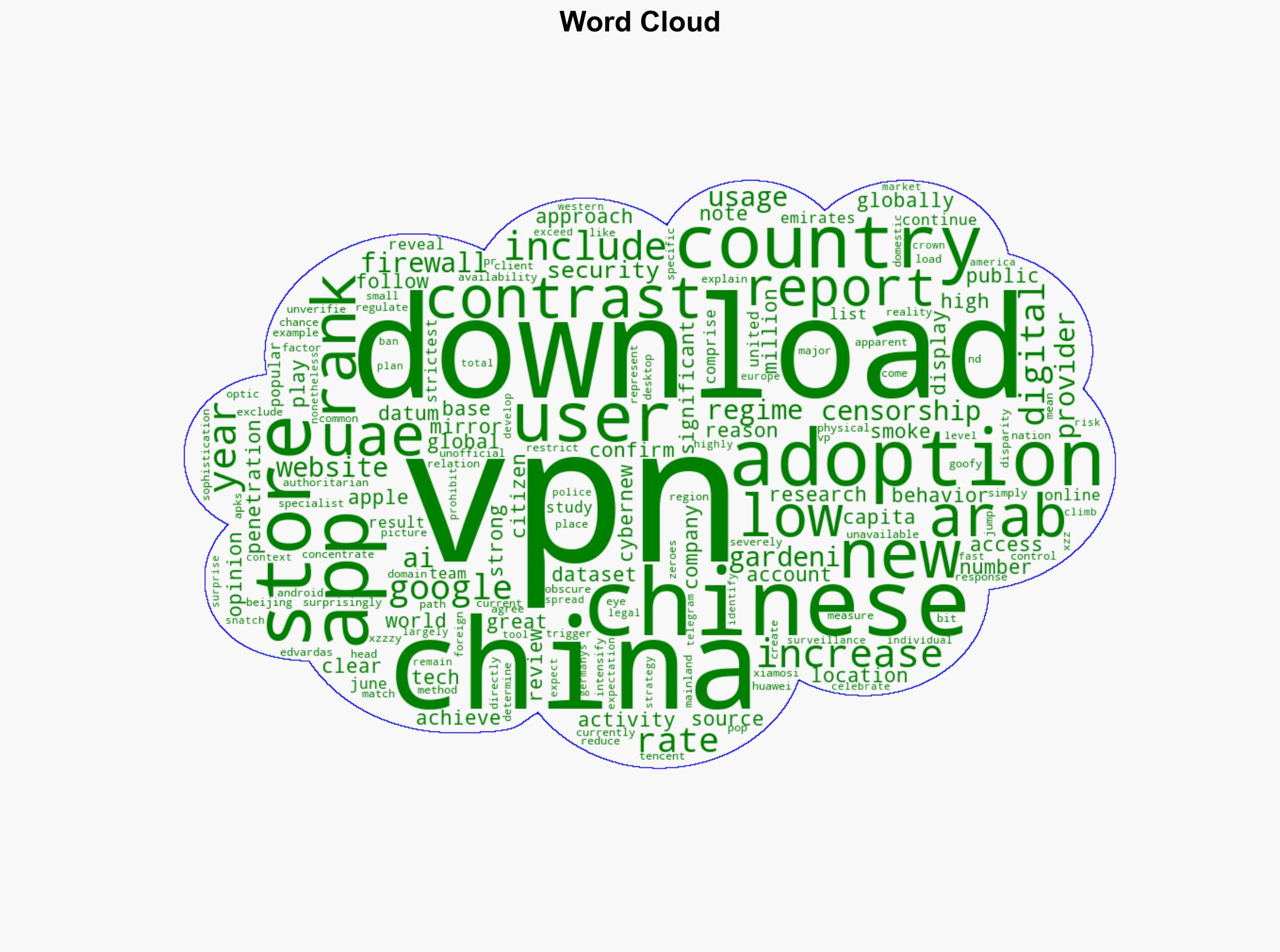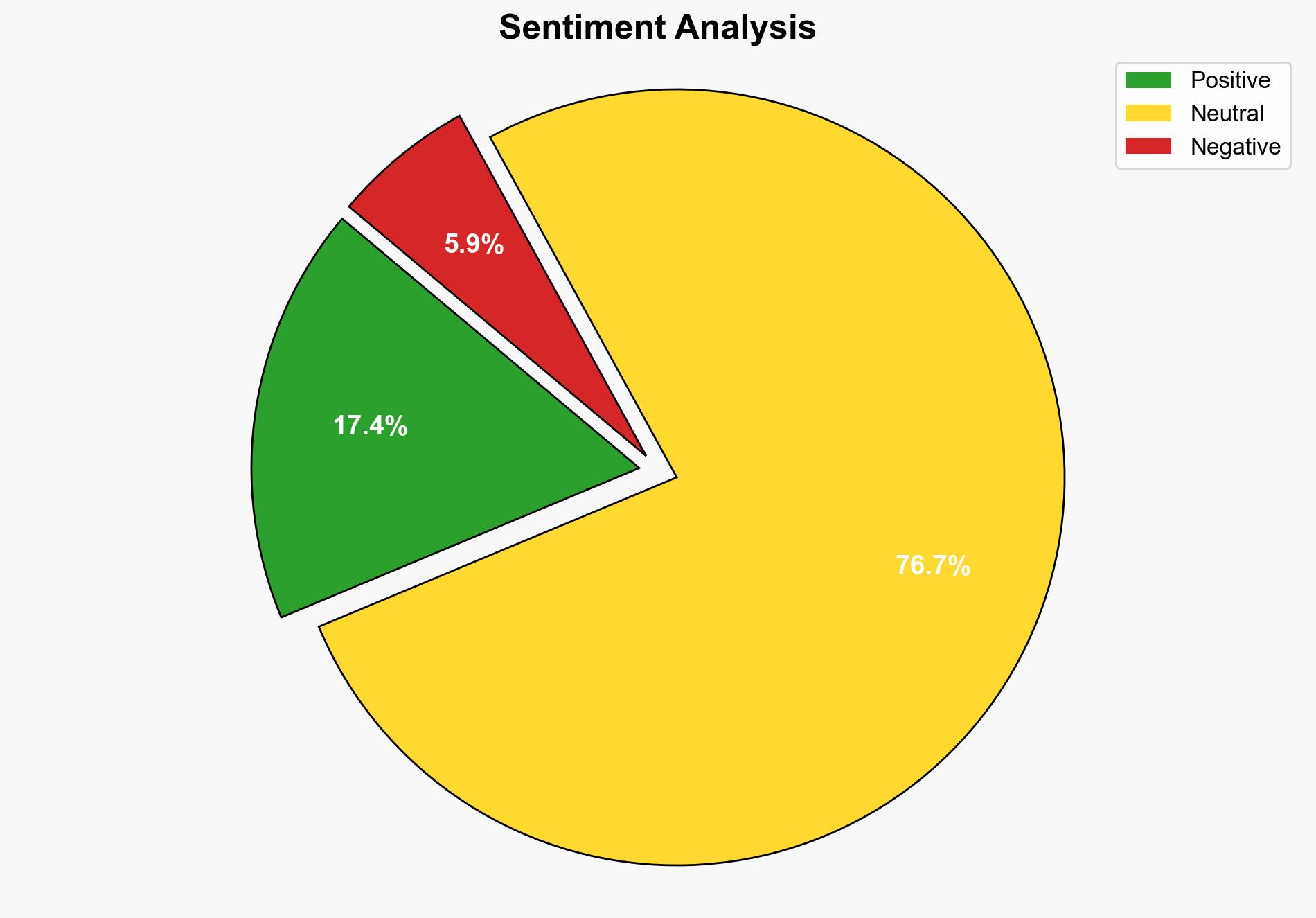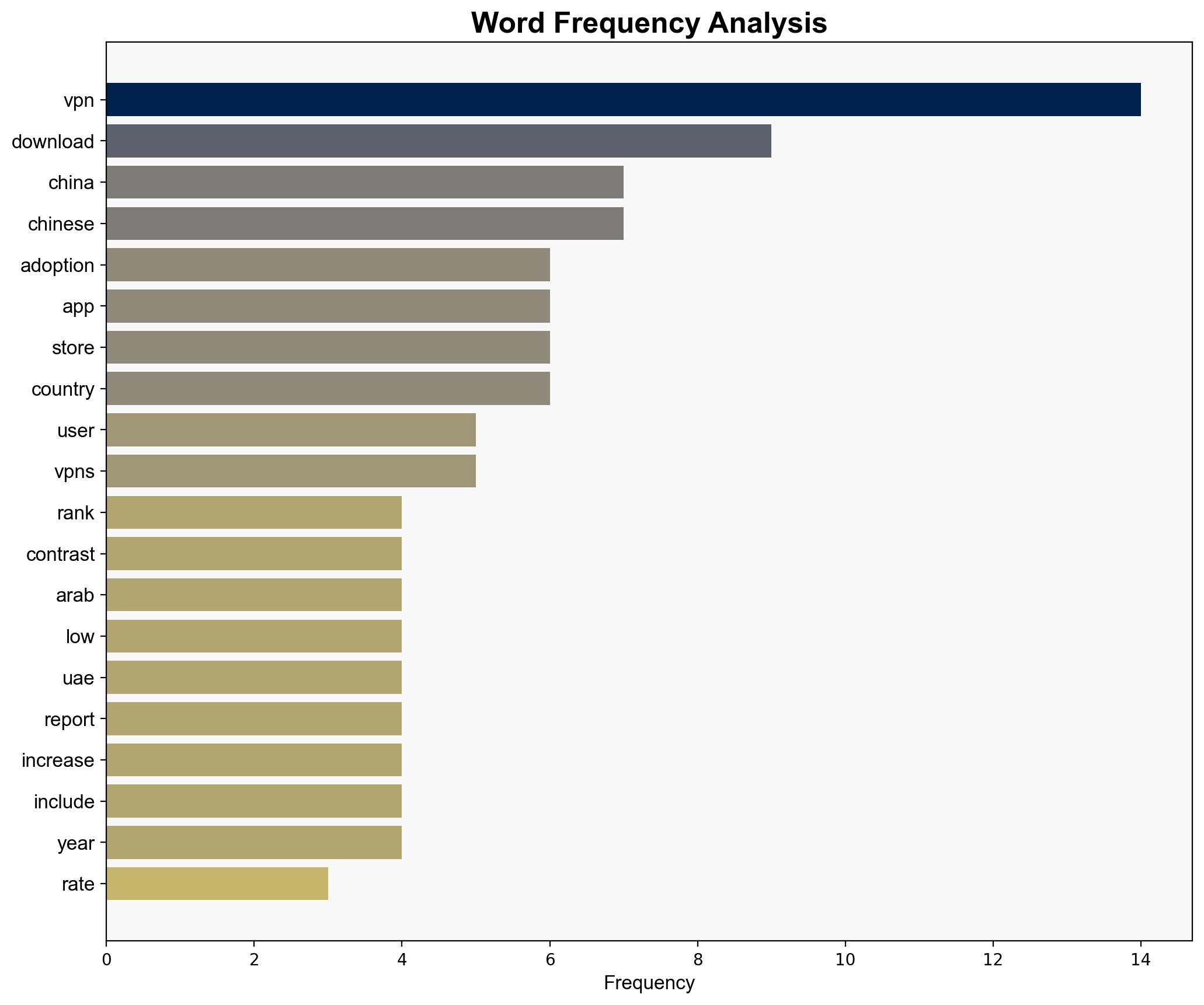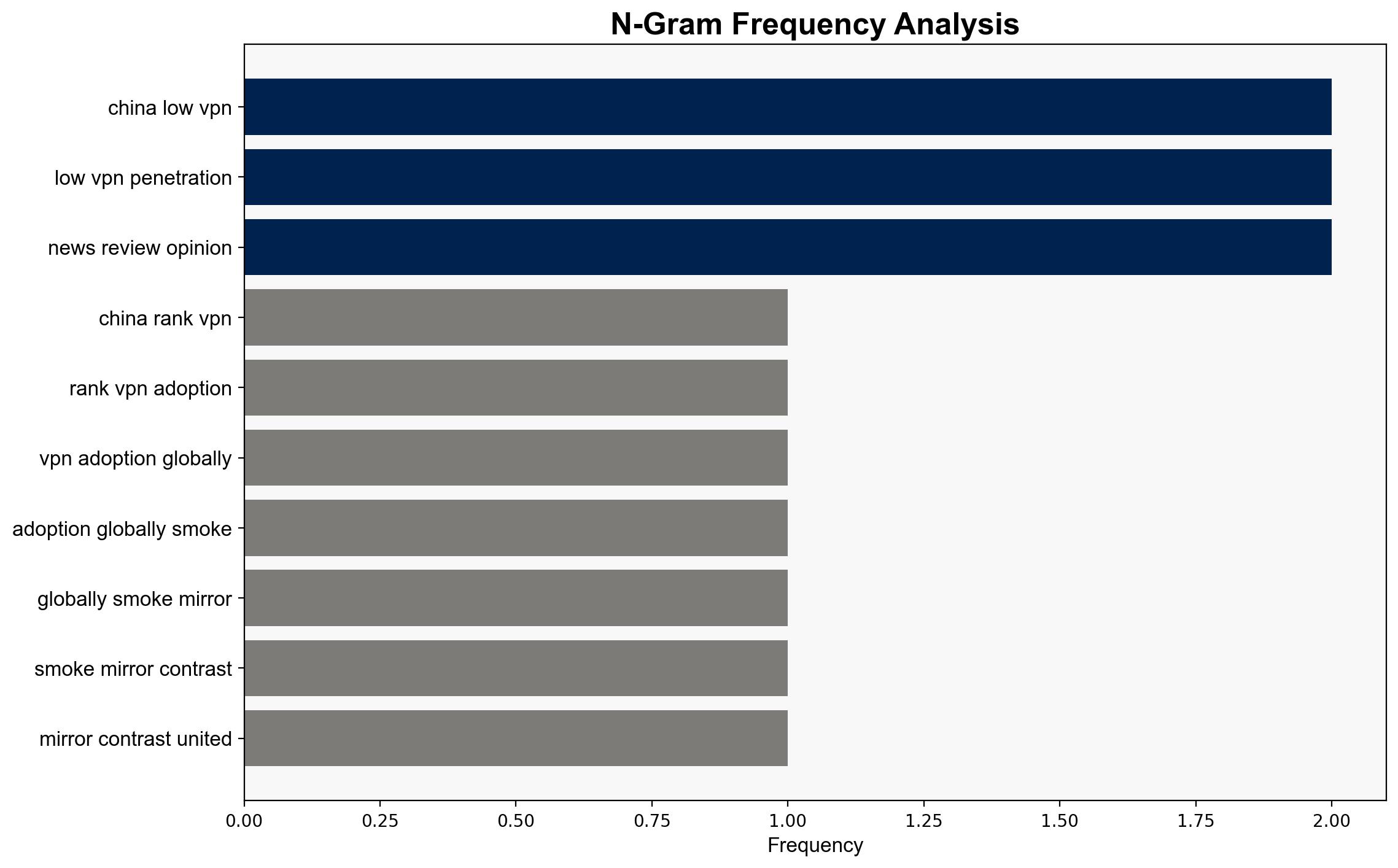China ranks last in VPN adoption globally – but it may all be smoke and mirrors – TechRadar
Published on: 2025-10-31
Intelligence Report: China ranks last in VPN adoption globally – but it may all be smoke and mirrors – TechRadar
1. BLUF (Bottom Line Up Front)
The most supported hypothesis is that China’s low VPN adoption rates are a result of stringent government controls rather than a lack of demand. This conclusion is drawn with moderate confidence due to the complexity of the data and potential for underreporting. It is recommended to monitor alternative VPN access methods and the evolution of China’s digital surveillance strategies.
2. Competing Hypotheses
1. **Hypothesis A**: China’s low VPN adoption is genuine, reflecting limited demand due to effective government censorship and control over internet access.
2. **Hypothesis B**: The reported low VPN adoption is misleading, as Chinese users employ alternative methods to access VPNs, circumventing official app stores and thus not being captured in the data.
Using Analysis of Competing Hypotheses (ACH), Hypothesis B is better supported. The evidence suggests that users may be accessing VPNs through unofficial channels, which are not reflected in app store download statistics. The sophistication of VPN access methods and the existence of alternative download sources support this hypothesis.
3. Key Assumptions and Red Flags
– **Assumptions**: It is assumed that app store download data accurately reflects VPN usage, which may not account for alternative access methods.
– **Red Flags**: The exclusion of data from global VPN providers and the potential for users to access VPNs through foreign app store accounts or unofficial websites.
– **Cognitive Bias**: Confirmation bias may lead to underestimating the adaptability of Chinese users in circumventing censorship.
4. Implications and Strategic Risks
– **Economic**: Continued restrictions could impact foreign businesses operating in China that rely on secure communication.
– **Cyber**: Increased sophistication in VPN access methods may lead to a cat-and-mouse game between users and government surveillance.
– **Geopolitical**: China’s approach to internet control may influence other authoritarian regimes, impacting global internet freedom.
– **Psychological**: The perception of impenetrable censorship may deter some users from seeking alternative access methods.
5. Recommendations and Outlook
- Monitor developments in China’s digital surveillance and VPN access methods to anticipate shifts in user behavior.
- Engage with cybersecurity experts to explore emerging technologies that may bypass current restrictions.
- Scenario Projections:
- **Best Case**: Increased international pressure leads to relaxed censorship and more transparent internet access in China.
- **Worst Case**: Enhanced surveillance technologies further restrict VPN access, leading to decreased digital freedom.
- **Most Likely**: Continued adaptation by users to circumvent restrictions, maintaining a status quo of restricted yet persistent VPN usage.
6. Key Individuals and Entities
– Edvardas Gardenis
– TechRadar
– Cybernews
7. Thematic Tags
national security threats, cybersecurity, counter-terrorism, regional focus





